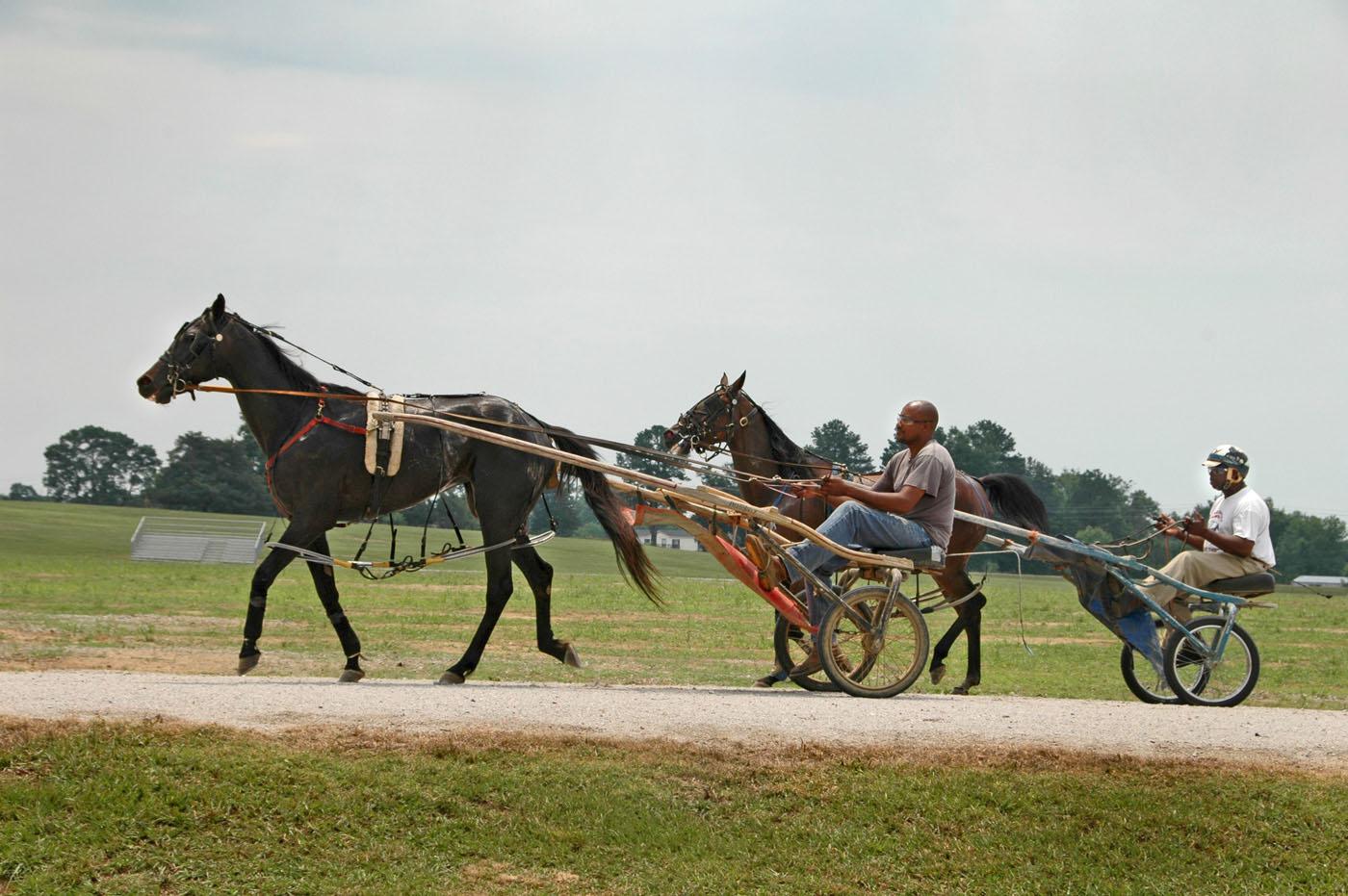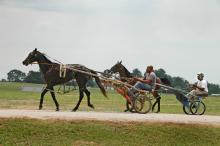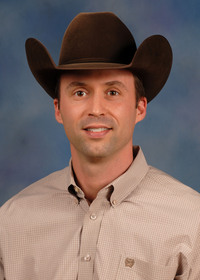Information Possibly Outdated
The information presented on this page was originally released on July 10, 2008. It may not be outdated, but please search our site for more current information. If you plan to quote or reference this information in a publication, please check with the Extension specialist or author before proceeding.
Mississippi Horse Park reopens harness track
By Steven Nalley
MSU Ag Communications
MISSISSIPPI STATE -- A recent excavation effort will enable Mississippi harness racing enthusiasts who love attending good races actually to see some.
A hill in the center of the Mississippi Horse Park's five-eighths-mile all weather track obscured the audience's view of the back of the track for more than half a decade after the park opened in 1999. The harness track reopened on June 20, after the removal of 65,000 cubic yards of dirt from its center.
Bricklee Miller, facility manager with the horse park at Mississippi State University, said 90 percent of the hill was limestone, requiring large equipment to tear the foundation before moving it. The process took two months.
“It was as tall as 25 feet in some areas,” Miller said. “Now, if you are 3 feet tall or taller, you can see around the track.”
Harness racing, where horses trot or pace at a steady gait carrying the riders behind them in buggies, draws crowds all over the country. Miller said 75 to 140 horses compete on a typical race day, with 10 to 15 horses on a track at a time.
The Mississippi Trotting Horse Association has about 200 members. Miller said harness racing at the historic Neshoba County Fair has familiarized many Mississippians with the sport.
“We have more than 300 stalls on our grounds, but we actually need more room,” Miller said. “There are 26 local harness racing barns, and our track supports weekly trainers from Starkville, Macon, Louisville, Pheba, West Point, Columbus, Artesia, Crawford and other areas.
“We used the dirt from the center of the track to build a future barn site and a path from the bath and shower house. We also used it to develop an area for 50 more electrical hookups for trailers and campers, for a total of 150 at the park,” Miller said. “We are accomplishing several projects at one time.”
Miller said the hill prevented judges from accurately recording lap times and calling fouls. After three years of using an elevated platform to judge the race, U.S. Trotting Association officials refused to sanction another race at the Mississippi Horse Park until the hill was moved.
“When you have a sanctioned race, the earning totals the drivers earn when they're here go to the national headquarters office to be tallied for the horses' lifetime earnings,” Miller said. “You want to be able to sanction a race because it not only gives the horses credit to add to their value, but it also gives the drivers credit.”
With inflation on the rise, racers and horses need all the earnings they can get. Floyd Bell, a harness racer whose father introduced him to the sport, said it is particularly expensive to transport horses across the country to compete.
“It's rough right now,” Bell said. “We have to go to Chicago and Indiana for some of the races.”
The horse park itself fulfills many purposes, facilitated by a unique three-way partnership between MSU, Starkville and Oktibbeha County.
“There is no other university in the state of Mississippi that has what we have here as far as this type of facility,” Miller said. “It's the perfect mixture because we have the veterinary college, we have research scientists, and we have the Extension Service.”
For now, however, only harness training will be added to that mixture. Even though harness racing season began in early June, Miller said the next race at the horse park is tentatively scheduled for Sept. 29, during the month harness season usually ends.
“We could not schedule a race early in the season because we didn't know the track would be done,” Miller said. “So now we've got to wait until the season almost comes to an end, so we can make sure that all of our local racers are back here to race.”
Bell said there are other tracks in Mississippi for competitive racing, including one in Jackson. However, he took advantage of the horse park's new track for training after its opening ceremony, despite intermittent rain.
“You have to do it seven days a week in rain, shine, sleet or snow; it's just like a job for me,” Bell said. “You have to really want to do it to enjoy it.”




